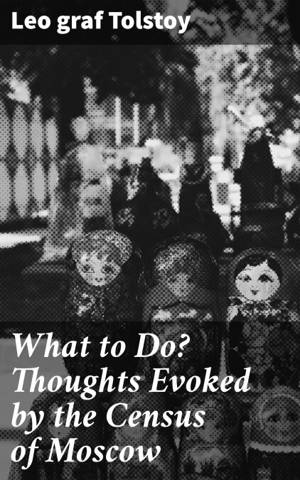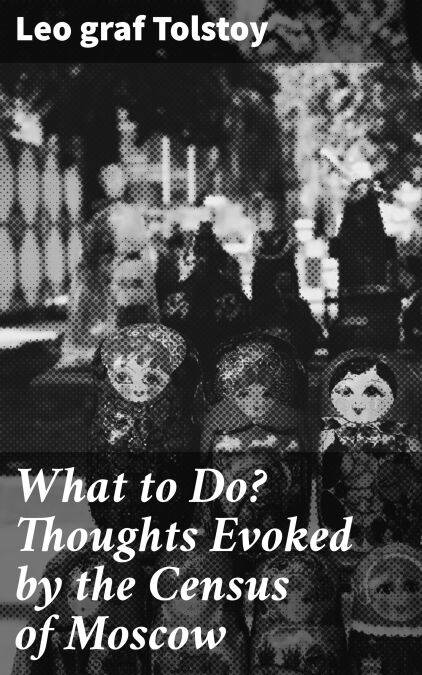
Bedankt voor het vertrouwen het afgelopen jaar! Om jou te bedanken bieden we GRATIS verzending (in België) aan op alles gedurende de hele maand januari.
- Afhalen na 1 uur in een winkel met voorraad
- In januari gratis thuislevering in België
- Ruim aanbod met 7 miljoen producten
Bedankt voor het vertrouwen het afgelopen jaar! Om jou te bedanken bieden we GRATIS verzending (in België) aan op alles gedurende de hele maand januari.
- Afhalen na 1 uur in een winkel met voorraad
- In januari gratis thuislevering in België
- Ruim aanbod met 7 miljoen producten
Zoeken
What to Do? Thoughts Evoked by the Census of Moscow E-BOOK
Exploring Existential Questions Through a Census in Moscow
graf Leo Tolstoy
E-book | Engels
€ 0,49
Omschrijving
In "What to Do? Thoughts Evoked by the Census of Moscow," Leo Tolstoy presents a poignant critique of Russian society in the aftermath of the 1897 census. This thought-provoking essay meditates on the ethical implications of population statistics, examining the moral condition of society through the lens of social justice and individual responsibility. It is characterized by Tolstoy's signature clarity and simplicity, embodying a narrative style that seeks to engage the reader in deep philosophical inquiry rather than providing prescriptive solutions. Set against the backdrop of sweeping social change, the book reflects his concern for the disenfranchised and the pressing call for social reform, making it a seminal text in the canon of Russian literature and social philosophy. Leo Tolstoy, renowned for his masterpieces "War and Peace" and "Anna Karenina," consistently grappled with issues of morality, faith, and the human condition. Influenced by his own spiritual struggles and social observations, Tolstoy'Äôs writing often sought to disrupt the complacency of his reader. This particular work emerged from his profound questioning of the systems that govern societal structures, prompting him to engage with the implications of socio-political numbers on individual lives. This book is essential for anyone seeking to understand the moral dilemmas posed by societal structures and serves as a compelling gateway into Tolstoy's philosophical explorations. It not only prompts a critical reflection on one'Äôs personal responsibilities within society but also challenges readers to contemplate the broader implications of their existence in an increasingly mechanized world. Highly recommended for enthusiasts of Russian literature, social critique, and philosophy.
Specificaties
Betrokkenen
- Auteur(s):
- Vertaler(s):
- Uitgeverij:
Inhoud
- Aantal bladzijden:
- 237
- Taal:
- Engels
Eigenschappen
- Productcode (EAN):
- 4057664563613
- Verschijningsdatum:
- 3/12/2019
- Uitvoering:
- E-book
- Beveiligd met:
- Digital watermarking
- Formaat:
- ePub

Alleen bij Standaard Boekhandel
Beoordelingen
We publiceren alleen reviews die voldoen aan de voorwaarden voor reviews. Bekijk onze voorwaarden voor reviews.









